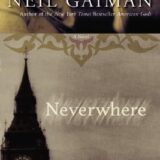Lazy Literary Agents in Self-Publishing Money Grab Via Argo Navis
Most of you who are reading these blogs here at Amazing Stories are probably well aware that publishing is changing. It has perhaps always been changing, but it seems to me that for the last decade or so the changes have been accelerating at an exponential rate. At first in the mid-2000s the big publishers started gobbling up the smaller publishers, then the bigger media companies began gobbling up the big publishers. Now there are four main publishers of science fiction and fantasy, though many of those have several different imprints so it gives the appearance that there are more than just four out there. Of course, losing Borders Books a couple of years ago wasn’t a big help either.
Then, too, small publishers have appeared in the last several years and I’ve been trying to promote (and review) books by them here and for Galaxy’s Edge. They’re one of the last bastions of print options not only for new authors but established authors who’ve lost their normal publishers–and believe me, quite a lot of familiar names have lost their publishers and their agents in the last decade and a half due to these changes.
The changes have to do with money. Or I should say greed. Agents nowadays will not take on anyone new unless they can bring that agency in a lot of money. The agencies of old, such a Scott Meredith, would have hundreds of clients who each brought in perhaps a few thousand dollars a year. The bigger authors obviously made more money than the mid-list authors, but in the end everyone prospered. Not so anymore. Agents have cut their lists down to the big money-makers and the main publishers stay with what’s familiar (in the consumer’s mind, anyway)–the big guns.
This is why we have trilogies and series up the wazoo. I have written early about this, how the desire to make money has moved publishers into the direction of serial publication. What’s been ruined in the process is an appreciation for the stand-alone novel. Remember that Philip K. Dick did not write a series or a trilogy; all of his novels were organic wholes: they had beginnings, middles, and each had a conclusion. Not anymore.
That aside, the other phenomenon is self-publishing. It now is apparently making a lot of money and now agents and publishers are doing all they can to get some (if not all) of that money by cashing in.
I have created a link to an article above that you should read. With the self-publishing success of Hugh Howey’s novel Wool (and a number of other authors in a wide range of fields), agents now sense that there is a lot of money out there to be made NOT by taking on new clients and submitting their novels to real, established publishers, but submitting them for publication to a self-publisher such as Argo Nevis. As the article above suggests, Argo Nevis will only take on novels submitted by agents, but the author–if accepted–has to pay for the cover art, the proof-reading, the layout, etc. In the meantime, the agent and the publisher walk off with a hefty 60% of the take. As the article points out, this is another way in which desperate authors get ripped off by greedy, mendacious, and extremely venal agents and authors who no longer act as advocates for authors and clients, except the biggest of them who will never have to go the Argo Nevis route. (The article does indicate that ARGO is just one of many services coming into existence now to take up this huge self-publishing market.)
Not only are authors getting screwed, but we, the readers of science fiction, are getting screwed as well. A publisher vets a book. That is to say, when you see a book for sale, it means that someone has decided to spend money on production, art, and distribution on the book; they, in effect, have faith in the book and they think it’ll sell. But now, if self-published works appear on the shelves of Barnes and Noble under the ARGO imprint or the imprints of others like Argo Nevis, then the unwary customer will have no way of knowing what’s good and what isn’t. All that matters is that agents and publishers make millions of dollars.
It’s all about money. It’s never about advocating good stories. This is why I never read trilogies or books-in-series. I’ll read the first book in a series or a trilogy, but only to review it, either for Amazing Stories or Galaxy’s Edge. But I’ve taught literature for over 36 years and I know how the novel as an art-form functions. There’s a reason why Faulkner’s The Sound and the Fury has no sequel: the story is over in the end. It’s over. There’s no need for a sequel. When Hemingway’s A Farewell to Arms or The Garden of Eden comes to an end, those books are OVER. There are architectural and aesthetic reasons a novel is what it is. When they end, there is a sense of completeness in the reader’s mind. It’s the same for symphonies. Imagine Beethoven’s Ninth . . . without the last movement. Or more movements added on later because Beethoven’s publisher wanted to make more money. (Never mind what the composer wanted.)
That’s another blog entry all its own, but let the buyer beware and all you newbies out here be sure you know where you are submitting your work.
–Paul Cook











You know, for years I had a negative attitude about series. This primarily came from some Fantasy series I read where one publisher would take a character from one series and hand it off to a different author to more fully explore (exploit) that character’s rich history.
The problem was … it was all about money. The exploitation of a particular series was more focused on how many characters the publishers could exploit than on the quality of the works. Discprepancies (primarily continuity of plot lines and character traits) would creep into these kinds of works.
It also meant that a single writer would rarely be the author of works about the same story. It could become confusing and I was frequently disappointed with the “Writing by Committee” approach.
But as Marilyn points out, publishers want to make money. So do writers. I’ve matured enough (I hope) to realize that writing is a tough business and that a part of that business is dealing with series. These successful series are business models that people livehoods depend upon. So I’ve softened my vitriole (on occassion) to embrace series with more sensitivitiy. Afterall, Sherlock Holmes with seriealized, in part, because fans demanded that Doyle return to his character…again and again.
I seem to remember Harlon Ellison once writing that he had never done a sequel. I admired that and for years it was a semi-axiom of mine as a defining element of the quality of a story.
I’m no longer sure. I want my favorite authors to succeed and a series run is one model that springboarded many a writing career. I’m just worried the writing quality. When the intent is to write a series, the author needs to plan the entire series from the outset. Otherwise, it will end up like too many Hollywood film sequels. A work suffers from the “Writing by Committee” approach where too many fingers have gotten into the pie and the work is all piecework and all mucked up. When a series loses its continuity, it dissappoints not just fans, but the entire industry.
My overriding hope is for authors to make it financially– series or not– without having greed override the work’s raison d’etre.
I’ve been reading sf and fantasy since 1959 and I’ve seen the entire field evolve, and this includes the rise of the series. I have yet to read a story that required five or six or twelve novels to tell it. Dune was planned as three stories. And they work as three. But Farmer blew the Riverworld series by stretching it out. (His original outline suggested a novel of about 150,000 words.) Still, his idea was very fertile and I can see how fans influenced him. But I’ve never run into a story that needed to retold, unless it was for money. Look at the Ender’s Game novels. Even the Bean stories simply retell the Ender story. It’s all about money. No exceptions. Of course, a writer can intentionally plan a series and that’s what they usually do. That means that you’re not working with a regular novel, but an ongoing narrative. In the old days this would be like Don Quixote: a picaresque novel. Just a string of adventures. That’s all any series is. What it avoids is the complicated development of a character in a situation that requires resolution. That’s the beauty of a novel. And when it’s over, it’s over. Faulkner didn’t write a sequel to the Sound and the Fury because when the novel ends, it ends. Perhaps it’s just me, but I see the novel disappearing (as publishing demands for more money get bigger and bigger). I think publishers will expect first “novelists” to be first “serialists”. It’s all about money. The art of the novel is slowly disappearing. (This is why I think Philip K. Dick will emerge, as he has, as being sf’s greatest writer. He only wrote stand-alones and the greatness of his great novels excel because of it.) IMHO.
Dune itself was published as two separate novellettes in Analog; I may be wrong, but my impression of events says that it was only after the two parts were fused into the print novel version that Dune Messiah and Children of Dune were even conceived; Herbert had not done any series work previously (so far as memory serves) and Dune itself ends without any real indication that the story is to be continued.
Farmer? To YOur Scattered Bodies Go was, I believe, conceived as a stand-alone: Farmer doing his history thing of bringing interesting characters back to live (in this case Sir Richard Francis Burton); then encouraged to do another story their he went with The Fabulous Riverboat featuring Samuel Clemons and roped Burton in too. If memory serves from letter cols and fanzines at the time, he was under a lot of pressure from Fans to “get Burton to the source of the River”. And I distinctly recall reading an interview in which Farmer basically stated that it took him so long to finish because he had no ending in mind at the beginning; creating a coherent mythos for the world builders was an extremely difficult task because it had not originally been part of Farmer’s conception: he merely had a backdrop that allowed him to have different people and civilizations from different times interacting with each other. World building as it were was restricted to the different (real) cultures that would be featured and not to the general overall purpose of the River World itself.
Even Doyle regretted giving in to fan pressure and bringing Holmes back. Do a series, don’t do a series, but regardless, it’s probably a bad idea to bring back a series once finished just because the fans want more…
Publishers have always wanted to make money. They aren’t charities, after all.
These days, the difference is that they are no longer willing to build an author’s audience over a long period. They want money NOW, and if an author doesn’t prove to to do that within a book or two, they are out of there.
Your warning — to reader and writer alike — is all to the good. Let me suggest, if you can, that you spotlight the unsung heroes here: the legitimate small presses. I write for one of them, Fantastic Books. I have friends who have published through Apex. Pink Narcissus, which has carved out a niche in erotic fantasy/SF is expanding with an upcoming anthology featuring some “big name” authors. There are good guys out there putting out interesting stuff, but you won’t always find them at the local Barnes and Noble.